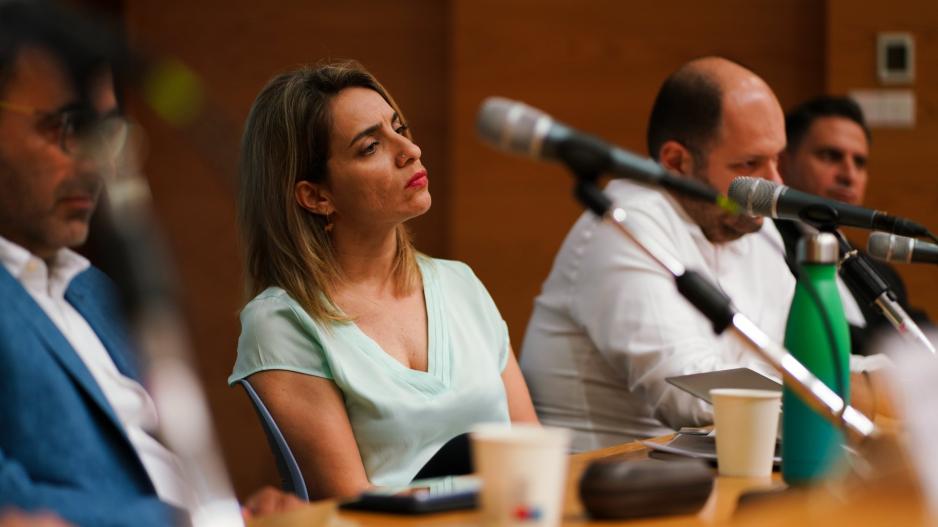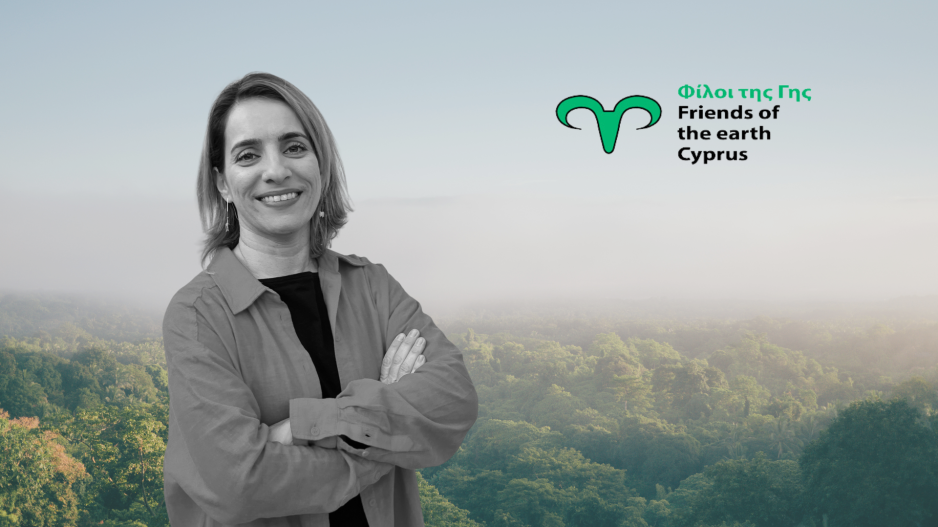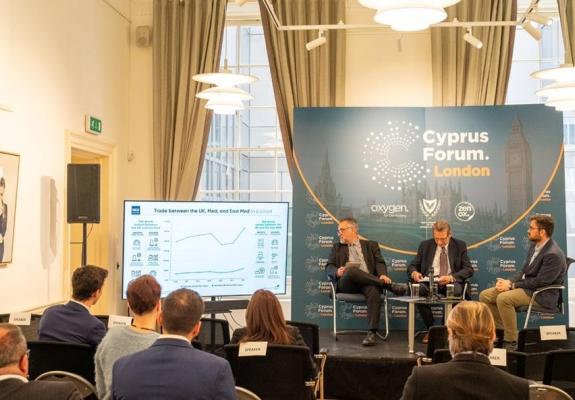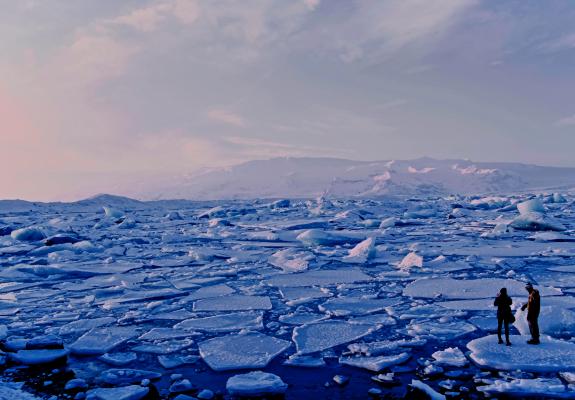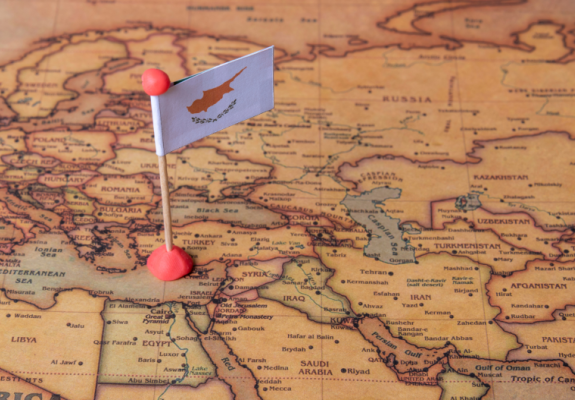Anastasia Korae: “We Have Stunning Yet Fragile Ecosystems—but Not Enough Defenders”
The President of Friends of the Earth Cyprus speaks about her journey into activism, pressing waste challenges, and Cyprus’s path to a sustainable future.
Nestled at the forefront of Cyprus’s grassroots environmental movement stands Anastasia Korae, President of Friends of the Earth Cyprus (FoE). Since her election in 2018, Anastasia has guided FoE’s campaigns on waste management, biodiversity conservation, and renewable energy, while championing social justice in tandem with ecological sustainability. A dedicated legal-sworn translator by profession, she discovered her passion for advocacy by translating policy texts from leading organizations like Friends of the Earth Europe and Zero Waste Europe—an experience that shed light on how legislation and civic engagement can safeguard nature and strengthen communities.
In the interview that follows, Anastasia delves into her motivations for stepping into activism and how her personal values fueled her persistent commitment to defending Cyprus’s precious landscapes. She also highlights FoE’s notable achievements since their founding in 1993 and shares her insights on the island’s critical environmental challenges, proposing forward-thinking policies to ensure a just, renewable future for all.
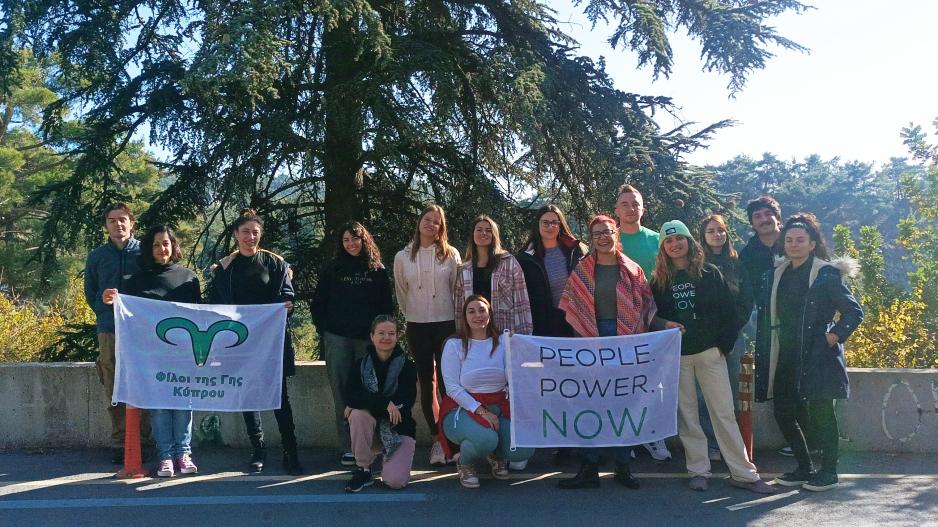
My decision to get involved in environmental activism was a conscious one. I knew that I would find myself in trouble and in many ways I did! But I have learned so much through the process and I’m still learning, so I’m glad I did it.
About ten years ago, I used to spend a lot of time outdoors doing activities and I would be in awe of the natural beauty of Cyprus. We have so many stunning sceneries and fragile ecosystems that are facing various existential threats and not enough people to defend them…
We have so many stunning sceneries and fragile ecosystems that are facing various existential threats and not enough people to defend them
One of the first things that I did was help organise a panel discussion about Akamas through Friends of the Earth (FoE), whom I had met in 2011 during their campaign to protect Dasoudi coastal forest. I could see that activism and public pressure worked -to a certain extent- and I wanted to see if I could make a positive contribution. So, after serving the FoE board for a couple of years, I was elected president in 2018.
My professional background as a translator also played a role since my worldview was transformed when I translated texts by Friends of the Earth Europe and Zero Waste Europe. Through those texts, I realised how much policies affect nature and communities, and I was inspired to try to “think globally and act locally” by pushing for real, people-powered solutions. In retrospect, I have seen in practice how language and communication skills are useful in a movement that needs to convey difficult concepts and realities in simpler words.
It is hard to pick just one significant achievement, but perhaps the mere fact that they are still here is a success story in itself! Space for civil society is increasingly shrinking and NGOs are losing their credibility. So it is not easy for a grassroots organisation led by volunteers to employ staff and continue to be a (rather) steady force that strives for environmental protection and social justice.
Despite all the challenges, FoE have been at the frontline of the climate and other environmental movements, empowering and mobilising people of all ages. It would be no exaggeration to say that FoE have been an incubator of activists.
By deploying all sorts of strategies, from awareness raising events to interventions in the media, from groundwork actions to advocacy at local and national level, from protests to fostering collaboration with other groups, from working with authorities to even taking legal action, they have remained loyal to their vision for a sustainable and equitable present and future.
My personal favourite thing about FoE is that they apply an intersectional approach and have a very progressive and collaborative mindset. This enables them to promote innovative solutions that benefit both people and the planet, such as micromobility to ensure accessibility for all, renewable energy communities as a way of addressing energy poverty, and campaigns aimed at preventing food waste and facilitating donation.
In my opinion, the most pressing environmental issue facing Cyprus today is waste because of the persisting government failures that are preventing the island from having effective systems for waste prevention and proper management. As a result, our ecosystems, public health, and the economy are suffering very serious consequences.
The epitome of government failures is probably the waste management plant of OEDA at Pentakomo, which cost over €46 million. Controversial since its inception, it has been connected with mismanagement and fraud
The epitome of government failures is probably the waste management plant of OEDA at Pentakomo, which cost over €46 million. Controversial since its inception, it has been connected with mismanagement and fraud. It is no longer operational since waste accumulates without any sorting or treatment and is subsequently landfilled, contrary to the plant’s purpose and in violation of EU legislation. The worst part is that there is no clear resolution in sight because of complex technicalities and political indifference and/or incompetence and/or corruption.
Most of the difficulties that we are currently facing with waste could be dealt with if we complied with EU legislation, such as the Waste Framework Directive, the Landfill Directive and the Single-Use Plastics Directive. Member States are required to adopt measures to reduce waste generation, improve recycling rates, and ensure environmentally sound disposal, by following the countless guidelines available and by implementing best practices towards a circular economy. Unfortunately, none of this is taken seriously…
It is true that the Republic of Cyprus is often underperforming and there is considerable evidence that it violates EU law. For example, in 2024, following several warnings, the Commission referred Cyprus to the Court of Justice of the European Union for failing to take necessary steps to protect and manage its Natura 2000 sites which are critical for biodiversity conservation. Another recent, worrying development was our failure to submit a final update of the integrated National Energy and Climate Plan.
In order to fully comply with EU law it would be enough to properly enforce it, by laying down our own locally-adapted measures. It is not an easy task but, drawing inspiration from other countries, we could introduce pragmatic legislative measures such as the following:
-
Deposit return schemes to incentivise the return of bottles and other packaging to designated collection points so that they can be reused (or recycled).
-
Supermarkets could be banned from throwing away or destroying unsold food and instead be forced to donate it to charities and food banks.
-
Businesses offering food and beverages could be forced to use reusable cups, cutlery, and plates for on-site consumption.
-
Public authorities could be encouraged to use green public procurement for goods, services, and projects.
-
Incentives and/or reduced taxes could be introduced for green entrepreneurship.
-
Stricter penalties for tree-cutting could be enacted through a revised forests legislation.
The list is endless…
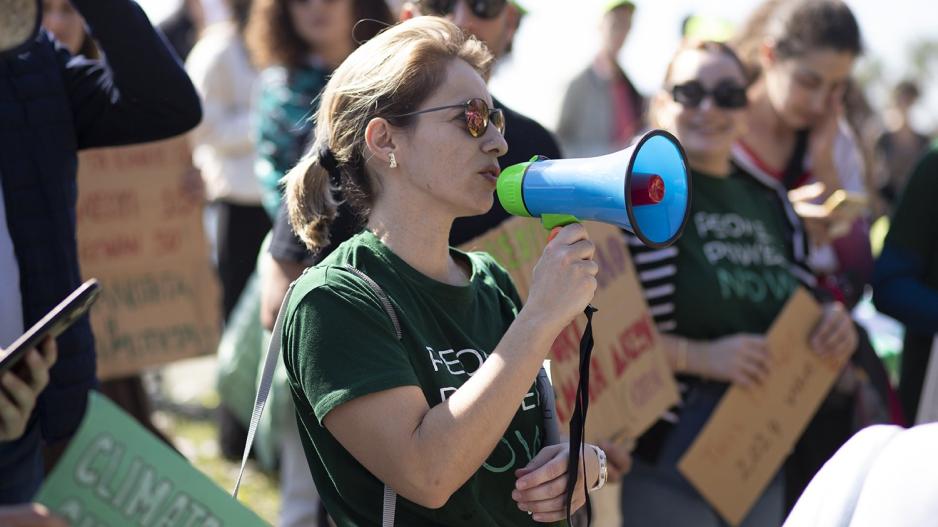
Akamas is perhaps our longest-standing campaign. Through the years, Friends of the Earth have written countless letters and articles, have co-organised protests, have mobilized international NGOs through our networks to raise awareness at EU level… One of our latest actions has been a Petition to the European Parliament concerning Akamas which remains open and has probably contributed to the EU Commission taking legal action against the Cypriot government.
Regarding endangered species and ecosystems, we are now working together with BirdLife Cyprus to stop the construction of a fish farming port in Pentakomo, an area important for the conservation of the Mediterranean monk seal, one of the world’s rarest species. The said project has not been appropriately assessed and we believe that it will have destructive consequences on the area’s natural habitats.
Last but not least, one of our main initiatives has been the protection of the last remaining pockets of green in our cities whose existence and wellbeing should not be taken for granted. Over the past couple of years, we ran campaigns to defend the Limassol Municipal Garden and Dasoudi coastal forest. In both of those cases, we may not have been able to completely stop the projects that undermined them, but we were able to take away significant gains for the future.
For a transition to 100% renewable energy, first and foremost, there needs to be peace and political stability not just in Cyprus but the wider region. From then on, a range of key challenges will need to be addressed through a comprehensive strategy that will not only achieve the technical aspects of this endeavour but will also ensure that the transition is done in a just and inclusive manner so that vulnerable communities, affected workers and low-income households are supported throughout the process.
The transition should be done in a just and inclusive manner so that vulnerable communities, affected workers and low-income households are supported throughout the process
In order for the strategy to be successful, a number of steps will be necessary which include –but are not limited to– sustained political will to enact supportive policies, investments in renewable technologies, multi-stakeholder cooperation, and public awareness. It sounds like a far-fetched dream especially in this system.
If I had a (realistic) magic wand, I would probably start by minimising demand for energy and hence reliance on fossil fuels through certain measures. For example, I would insulate all of our buildings so that they need less energy for heating/cooling, I would create infrastructure with trees for sustainable transport (e.g. electric buses and micromobility), and I would modernise the electricity grid with smart technologies that can facilitate the integration of decentralised energy systems (e.g. energy communities generating power from photovoltaics on roofs).
